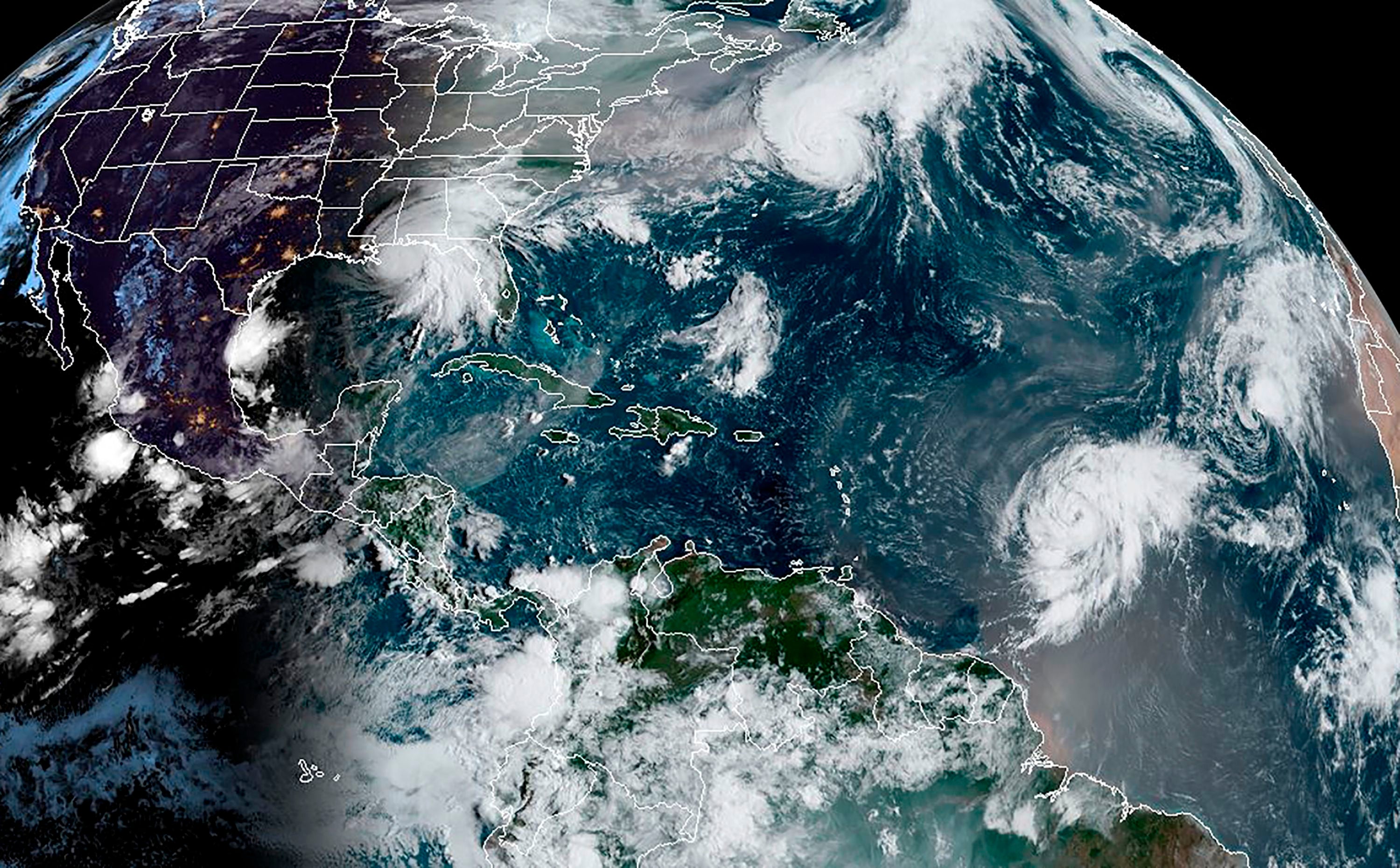Atlantic Ocean is at its hottest in 2,900 years
Ocean had absorbed more than 93 per cent of the excess heat from greenhouse gas emissions, according to the Intergovernmental Panel on Climate Change

Your support helps us to tell the story
From reproductive rights to climate change to Big Tech, The Independent is on the ground when the story is developing. Whether it's investigating the financials of Elon Musk's pro-Trump PAC or producing our latest documentary, 'The A Word', which shines a light on the American women fighting for reproductive rights, we know how important it is to parse out the facts from the messaging.
At such a critical moment in US history, we need reporters on the ground. Your donation allows us to keep sending journalists to speak to both sides of the story.
The Independent is trusted by Americans across the entire political spectrum. And unlike many other quality news outlets, we choose not to lock Americans out of our reporting and analysis with paywalls. We believe quality journalism should be available to everyone, paid for by those who can afford it.
Your support makes all the difference.The Atlantic Ocean has reached its hottest temperature in 2,900 years, according to a new study.
The research, published on Monday in the Proceedings of the National Academy of Sciences, found that recent Atlantic warming has been "unparalleled” in the past three millennia.
A team of scientists, from universities in the US and Canada, looked at the Atlantic’s “multidecadal sea surface temperature variability” (AMV) - long-duration, naturally-occurring, warm and cool phases that can last up to 40 years at a time, and swing about 1F between extremes.
As the report notes, AMV “strongly influences the Northern Hemisphere’s climate, including the Arctic”. Since the mid-Nineties, we have been in a warm phase.
AMV has been found to relate to historic droughts and can affect the frequency of severe hurricanes in the region. One of the most severe droughts of the 20th century, which created The Dustbowl of 1930s North America, occurred during an AMV warm phase.
The new study involved analysing thermometer data, along with ice and sediment cores, drilled from ice sheets and the sea bed which allow scientists to look through layers of microbes and chemical clues to reconstruct the past.
The samples were collected from South Sawtooth Lake, an 80 metre-deep lake in the Canadian Arctic, which is greatly impacted by changes in Atlantic sea surface temperatures
The team looked at titanium in the sediment cores to discover the story of the past 2,900 years in Atlantic Ocean temperatures, revealing variability from decade to decade, and century to century. For example, there were relatively warm conditions from 100BC to AD420 (the so-called “Roman Warm Period”).
Then the longest and most persistent drop in sea surface temperatures was during the “Little Ice Age” between about 1300 and 1870. In the last few decades, warm conditions have been rising.
“Temperatures have steadily increased since the 15th century minimum; the rate and magnitude of warming over the last few centuries are unprecedented in the entire record, leading to the last decade which was the warmest” in the past 2,900 years, the scientists wrote.
To back up that the findings at South Sawtooth Lake are linked to Atlantic sea surface temperatures, the scientists compared other evidence from across the North Atlantic.
They noted that other sediment cores, collected off the south coast of Iceland, gave clues as to what was happening over a shorter time period, of about the past two centuries.
In that data, turborotalita quinqueloba - the catchy name for a miniscule, shelled, single-celled organisms which like cold waters - have "been declining at an accelerating pace during the past century and reached unprecedented low values in the last decade".
Overall, the findings state that “recent Atlantic warming is unparalleled” in at least 2,900 years. While it is noted that natural factors could be at play, the impact that the climate crisis is having on the health of the oceans cannot be ignored.
The Intergovernmental Panel on Climate Change (IPCC) in 2013 found that the ocean had absorbed more than 93 per cent of the excess heat from greenhouse gas emissions, mainly from fossil fuel consumption, in the last 50 years.
In September, Arctic sea ice shrank to its second-lowest extent since satellite records began. A study earlier this year found that the deep ocean will be warming rapidly by 2050 - even if dramatic reductions in emissions were to happen today.



Join our commenting forum
Join thought-provoking conversations, follow other Independent readers and see their replies
Comments